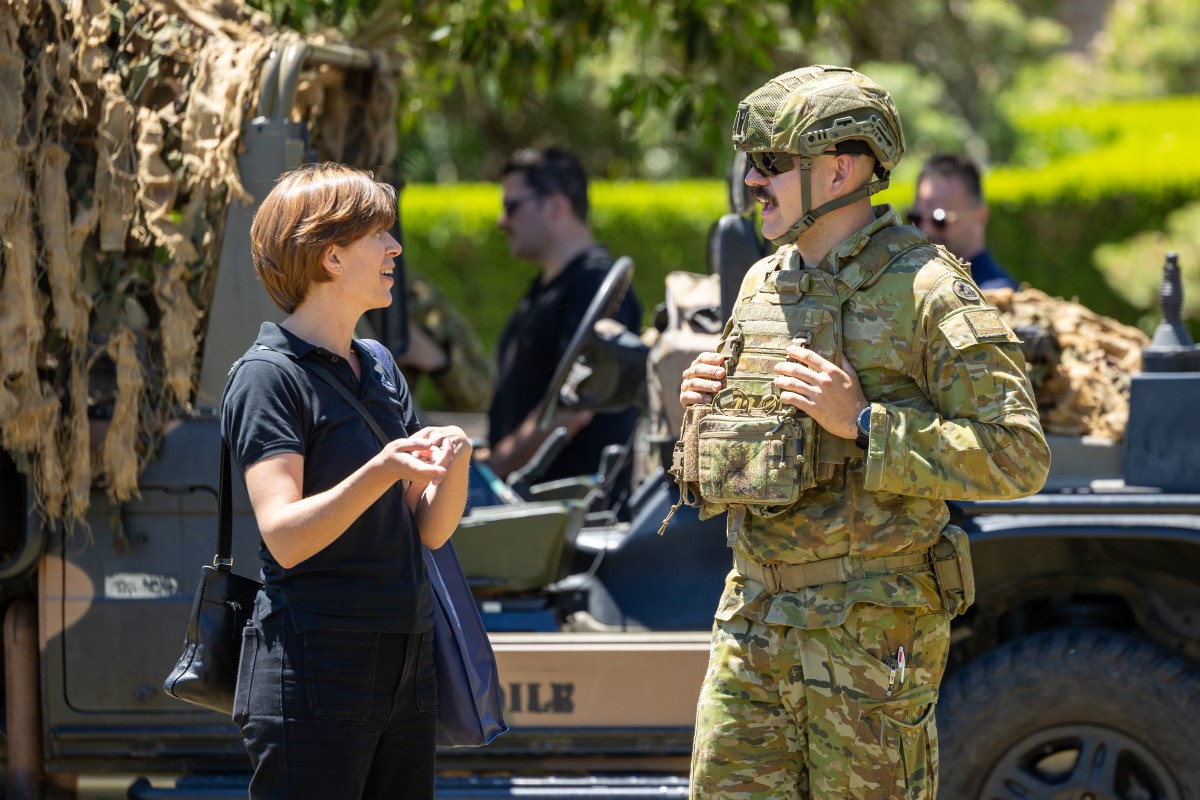Since opening its doors in 1986, the Australian Defence Force Academy (ADFA) remains an important way for Australians to start their career as an Army officer. ADFA has been the subject of debate over much of its history, with strong views about whether ADFA is ‘fit for purpose’. Much of this debate occurs without a strong sense of the original purpose for ADFA, how it has changed, or how that purpose may evolve in the future.
According to a UNSW history of ADFA, led by highly regarded historian David Lovell, the ‘long and winding road to Northcott Drive’ had its start with Federation. Looking back, it seems almost inevitable that officer education in Australia would, at some point, be consolidated into something like ADFA. It took Sir Arthur Tange’s extraordinary efforts through the 1970s combining five separate military departments into the Department of Defence (the First Principles Review of its day), the creation of the ADF and a lot of political grunt to make ADFA a reality.
A close examination of Eric Andrews’ Centenary History of Defence, Vol. 5 – The Department of Defence reveals that Tange saw a very clear purpose for ADFA - to produce officers who are strategic thinkers. The method by which this was to be achieved was through ‘balanced and liberal education in a military environment’.
The ‘balanced and liberal education’ was intended to give officers the opportunity to reflect on an Australian Defence philosophy by integrating ideas from across military, political, constitutional and foreign policy. (Please note, Defence philosophy is related to but distinct from Strategic Studies or War Studies). Tange hoped this would resolve the post-WW2 friction between government and the military created by, as Tange saw it, staff officers failing to grasp the principles of public administration. That is, Tange correctly identified the need to ‘make’ officers with a strong education in Defence philosophy since the opportunities to ‘buy’ such officers were extremely limited (e.g. graduate recruitment).
ADFA’s ‘military environment’ was to be tri-service. This was designed to enable more ‘joint’ activity under the (then) newly formed ADF both formally (e.g. officers for whom tri-service is the natural standard) and informally (e.g. creating an ‘ADFA network’ that spans the services). That is, ADFA graduates would be tri-service ‘natives’.
ADFA was therefore a completely different officer entry pathway for Army for two main reasons. First, ADFA filled a gap in education around Defence philosophy. Second, ADFA gave Army officers the opportunity to ‘grow up’ in a tri-service environment distinct from single service officer training offered at the Royal Military College.
Tange’s original purpose for ADFA has been partially realised. ADFA remains a uniquely tri-service environment. Army officers who pass through ADFA are grounded in the principle that military activity necessarily involves co-operation and co-ordination across domains. This gives junior officers an operational and tactical advantage in their thinking from the beginning of their careers.
By contrast, the ‘balanced and liberal education’ purpose has changed. Where Tange’s original purpose for ADFA indicated a focus on educating officers about strategic thinking and Defence philosophy, ADFA has built a reputation for excellence in other areas, such as producing world class engineers. This can be interpreted positively or negatively.
A positive interpretation is that the ADFA model has proven flexible enough to evolve with the changing needs of the ADF. For example, Defence acquisition experience through the 1990s and 2000s led to the recognition that staff officers needed more ‘business acumen’. In response to this the ADFA School of Business was established in 2005 and strong enrolments demonstrate the ongoing popularity of this decision in the Defence community. Equally, UNSW’s introduction of cybersecurity courses in 2014 shows agility in adapting to the evolving complexity of Land Power.
A negative interpretation is that ADFA has lost its way. Lots of universities offer courses in engineering, business and cybersecurity. The number of institutions offering Defence philosophy (or related disciplines) is much smaller. Given Tange’s original purpose of using ADFA to develop strategic thinkers and military public administrators well-schooled in Defence philosophy, Army might do better to ‘buy’ (recruit) officers with degrees in engineering, business and cybersecurity and look to ADFA to ‘make’ Defence philosophers.
No matter how changes at ADFA are interpreted, the underlying need for diversity of thought to drive innovation in Land Power endures. It would be remiss of Army to undo the good work developing engineering, business or cybersecurity at ADFA.
Instead, Army might reinvigorate Tange’s original purpose by seeking to introduce Bachelor and Master of Military Studies degrees. Military Studies could expand Tange’s vision for Defence philosophy with courses in Defence economics and military sociology. Such degrees would educate Army’s officers to be ‘native’ strategic thinkers, well-schooled in military, political, constitutional and foreign policy. After disciplining theory with the crucible of practice as junior Army officers, graduates of Military Studies would become Army’s front line staff officers leading manoeuvres in the ongoing Battle of Russell Park.
Taking Tange’s vision one step further, the need for military officers who understand public administration is matched by the need for civilian public administrators who understand military affairs. Civilian access to Military Studies could see ADFA become the place that educates ‘quad-service’ natives – those people who grow up understanding that it takes the combined powers of Army, Navy, Air Force and Public Servants to defend Australia and its national interests.




